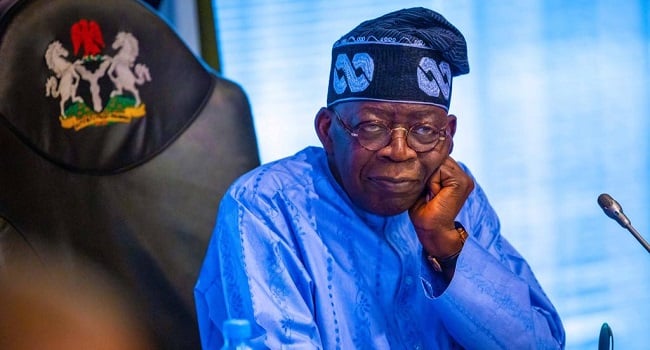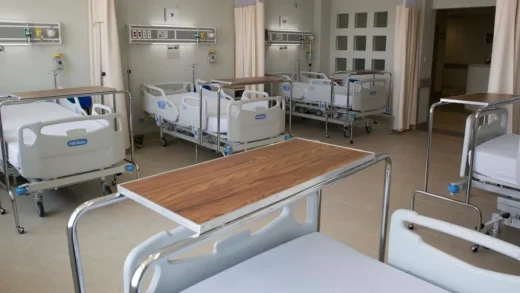
It appears that some individuals on the presidential pardon list, originally submitted by Attorney-General Lateef Fagbemi, may be removed due to significant public disapproval over the inclusion of certain prominent figures convicted of serious crimes.
The pardon, traditionally issued to commemorate national events, aims to alleviate prison overcrowding and foster national unity.
The President’s office stated the decision stemmed from recommendations by the Presidential Advisory Committee on the Prerogative of Mercy, led by the Attorney-General. The list included categories like pardons, posthumous pardons (including the Ogoni Nine), recognition of Ogoni Nine victims, clemency, reduced sentences, and commuted death sentences.
However, this instance has sparked renewed discussions regarding the openness and validity of Nigeria’s pardon system.
Attorney-General Fagbemi clarified that the announced Presidential Prerogative of Mercy is still under assessment and not yet complete.
The inclusion of certain names continues to generate controversy, with anti-corruption and security organizations, such as the Economic and Financial Crimes Commission and the National Drug Law Enforcement Agency, reportedly working to prevent the release of specific individuals on the list.
Fagbemi presented a list at the Council of State meeting on October 9, 2025, featuring illegal miners, individuals convicted of financial crimes, drug offenders, foreign nationals, Maj Gen Mamman Vatsa, Prof Magaji Garba, Ken Saro-Wiwa and the Ogoni Eight, and those convicted of capital crimes like Maryam Sanda, among the 175 individuals slated to receive presidential pardon.
The complete list was disclosed in a statement from the President’s office on Saturday, October 11, 2025.
While some names of well-known political figures on the list, such as Herbert Macaulay and Farouk Lawan, did not cause much concern, the presence of individuals associated with violent crimes and breaches of security ignited widespread condemnation.
Notably, Maryam Sanda, convicted in 2017 for the fatal stabbing of her husband, Bilyaminu Bello, was included.
While some of Bello’s family members opposed the pardon, Bello’s father, Alhaji Bello Isa, and Maryam’s father, Alhaji Garba Sanda, held a press conference to express their acceptance.
The President also pardoned Major S. Alabi Akubo, sentenced to life in prison for unlawful possession of firearms, and Kelvin Prosper Oniarah, whose kidnapping activities spanned several states.
Questions were raised about the inclusion of individuals convicted of killing law enforcement officers, drug traffickers, and those involved in money laundering, among other offenses.
This uproar has seemingly led to a re-evaluation of the clemency procedure, with the President’s office considering the removal of controversial figures who have drawn strong public criticism.
Security agencies kick
According to a presidential aide, who requested anonymity because he was not authorized to speak on the matter, the EFCC, Independent Corrupt Practices and Other Related Offences Commission, NDLEA and top security agencies have strongly opposed the list, claiming that some names were “inserted improperly” and were not among those recommended by the presidential committee that reviewed clemency applications.
The anti-corruption agencies warned that releasing some of these individuals could jeopardize ongoing efforts to combat corruption and organized crime.
A high-ranking security source stated that some of the proposed beneficiaries “can never be released,” especially those convicted of killing security personnel or committing kidnapping and other serious crimes.
“The list was too extensive, and certain names did not undergo the necessary security checks.
The EFCC, NDLEA, and other security agencies have insisted on a reduction in the list. Not all the names were provided by the committee responsible for reviewing the cases,” the presidential aide stated.
Officials familiar with the matter suggested that the final list will likely exclude individuals whose release could pose security risks or undermine faith in the legal system.
A senior official, also speaking anonymously, told The PUNCH that “The list will be refined to include only those who truly merit the President’s compassion. Those whose inclusion has generated controversy will be removed.”
An official from a security agency said that “Some lower-level staff within the committee secretly added some names. It’s clear the President is unaware of some individuals on that list.
“They have now sent the list to NDLEA and other security agencies for review. Some names on the list did not meet the required standards. Some junior staff bypassed the standards.
In some cases, the events are recent. The positive aspect is that they remain in custody and have not been released.”
An official from an anti-corruption agency also spoke anonymously.
He informed The PUNCH, “I know that the ICPC and the police are uneasy with the list because it contains the names of some convicted individuals who should not be there.”
When contacted by The PUNCH, officials from the agencies declined to comment officially.
List for review
On Thursday, Fagbemi (SAN) stated that the Presidential Prerogative of Mercy recently announced by the President was still under evaluation and not yet finalized.
In a statement released in Abuja, the minister clarified that no inmates approved for clemency under the recent process have been released from custody.
According to Fagbemi, “The process is in its final administrative phase, which involves a standard examination to ensure that all names and recommendations fully comply with established legal and procedural requirements before any release document is issued.”
He further explained that following approval by the Council of State, the next step involves issuing a formal document implementing the President’s decision for each beneficiary.
“This stage provides an opportunity for a final review of the list for any necessary corrections before the document is sent to the Controller-General of Corrections for appropriate action.
This verification process is part of the standard procedure and reflects the government’s dedication to openness and due diligence,” the AGF stated.
Fagbemi expressed appreciation for the public’s vigilance and helpful feedback, viewing it as evidence of Nigerians’ deep concern for justice and good governance.
“There is no delay in the process; it is simply adhering to the law to guarantee that only those who are properly qualified benefit from the President’s mercy. The public will be duly informed as soon as all legal and procedural checks are completed. The rule of law prioritizes fairness over speed.”


